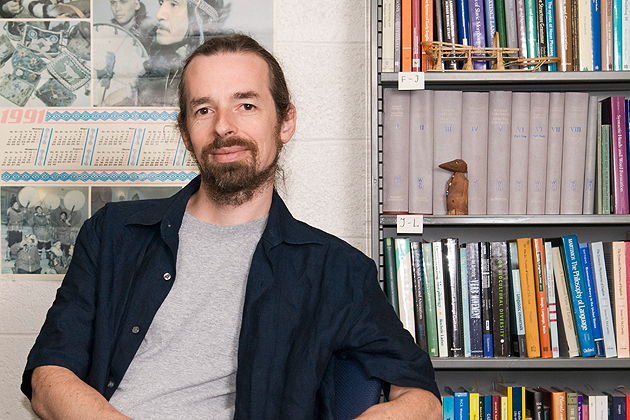
Why study a vanishing language? Jonathan Bobaljik, professor of linguistics in the College of Liberal Arts and Sciences, says scientists want to document languages to learn more about their diversity and the patterns that are surprisingly common to all, and their implications for human cognition.
Of the world’s 7,000 or so languages, he says, between 50 percent and 90 percent are in danger of extinction in the next 100 years.
“We go out literally to the ends of the earth and try to document languages as different as possible, to see if the patterns that we are familiar with are in these far-flung languages,” says Bobaljik, whose research is funded by the National Science Foundation. “We need to document this rich variety as quickly as possible, before it disappears.”



